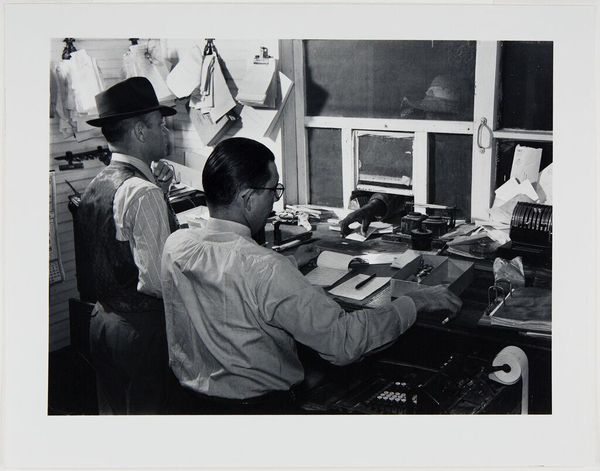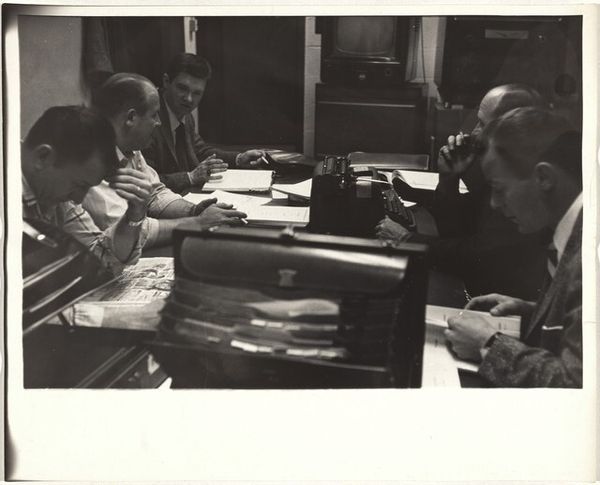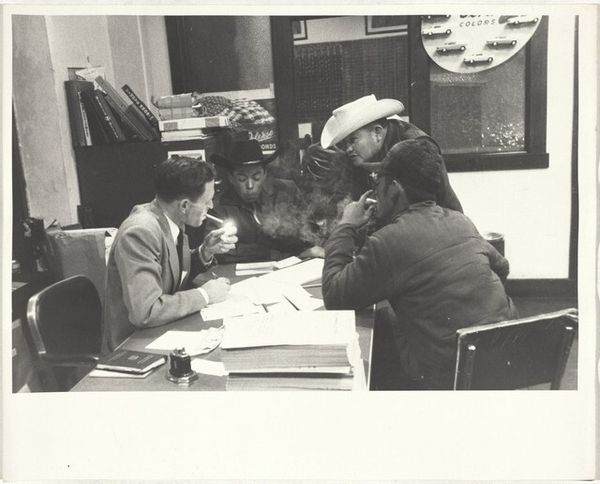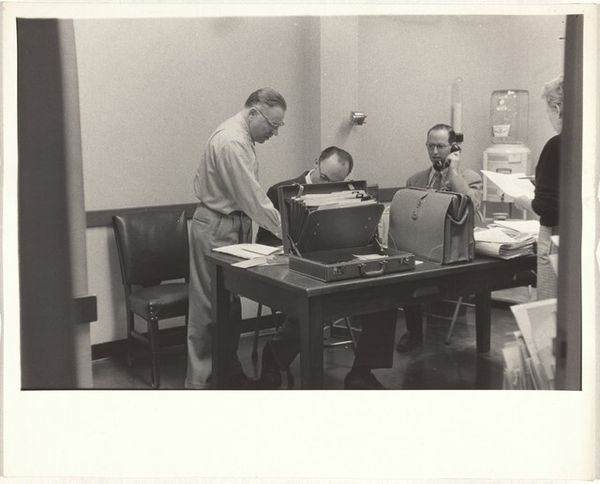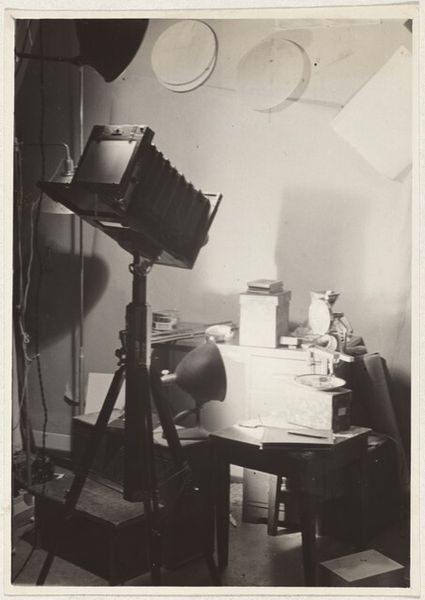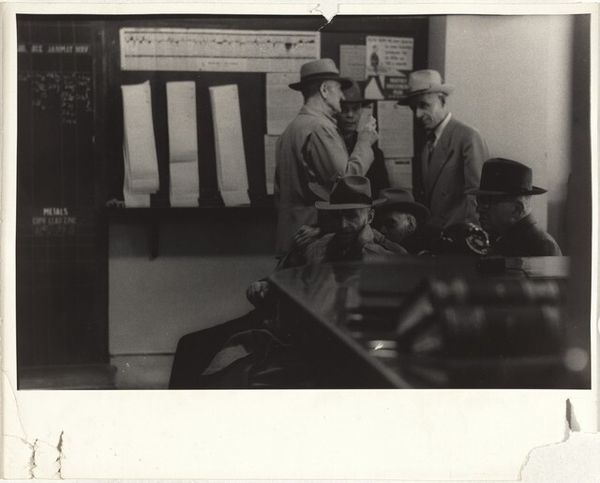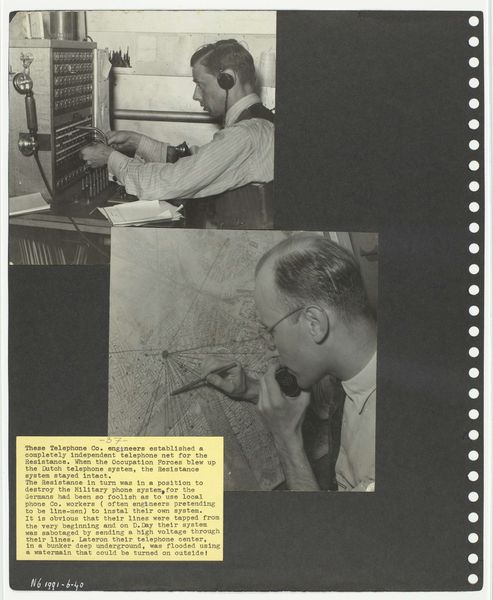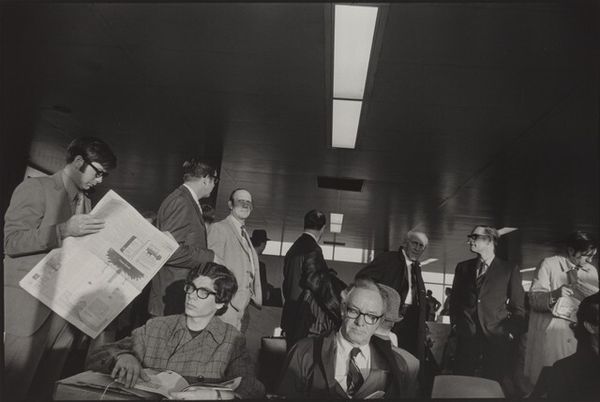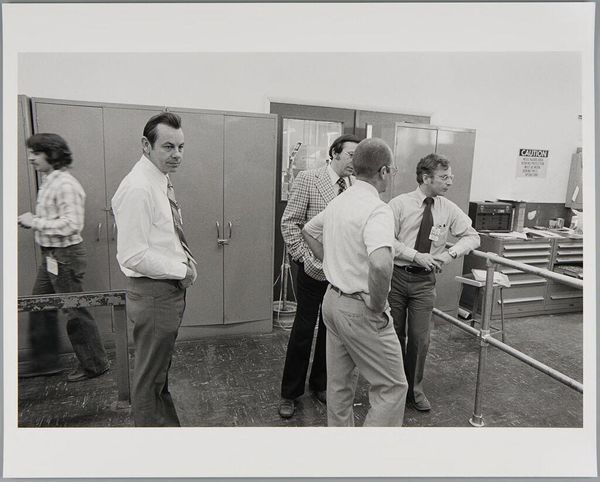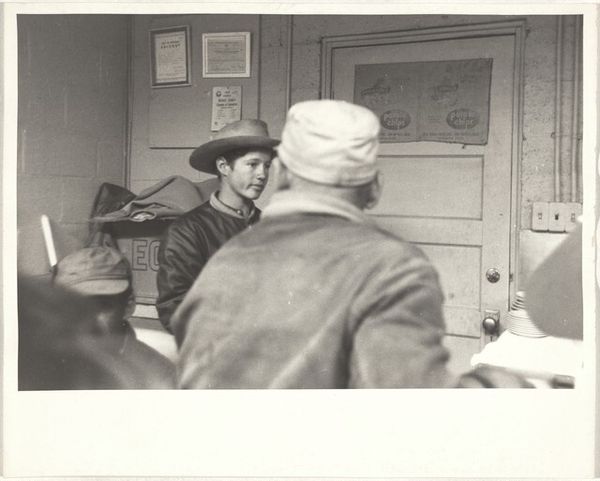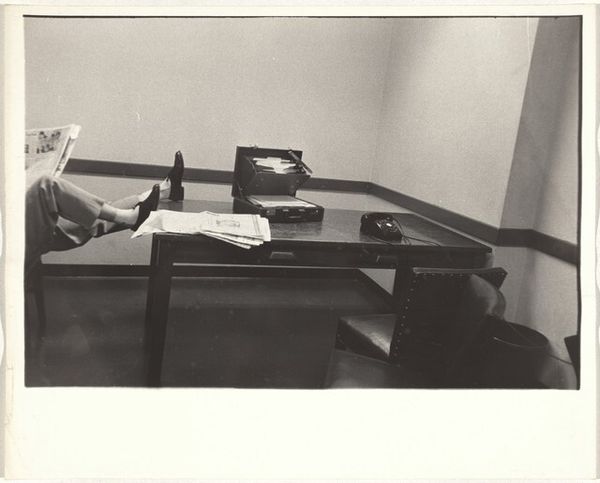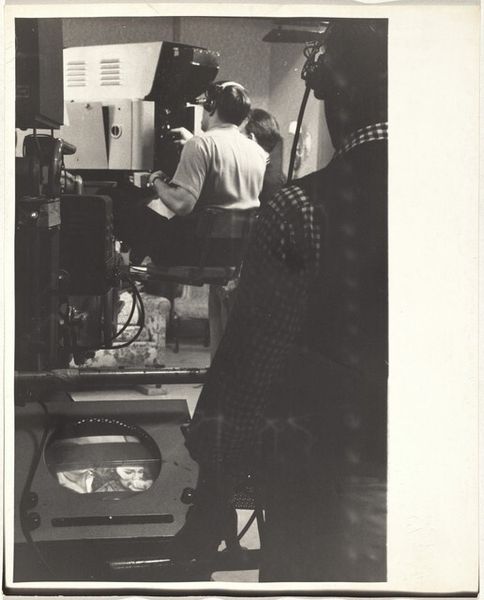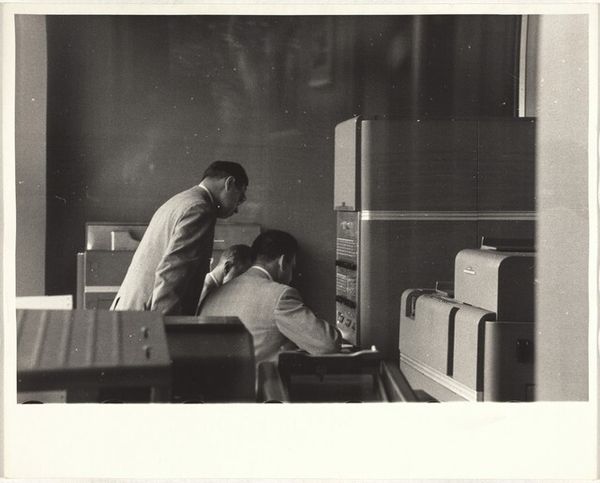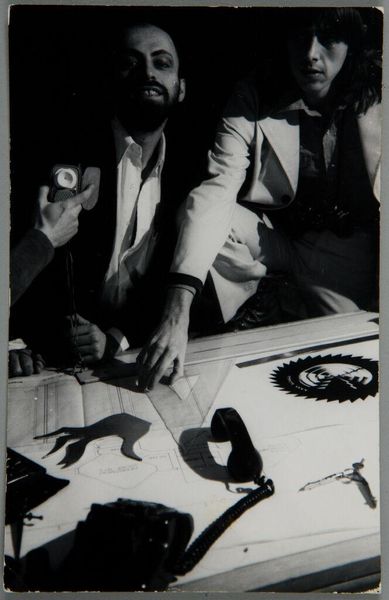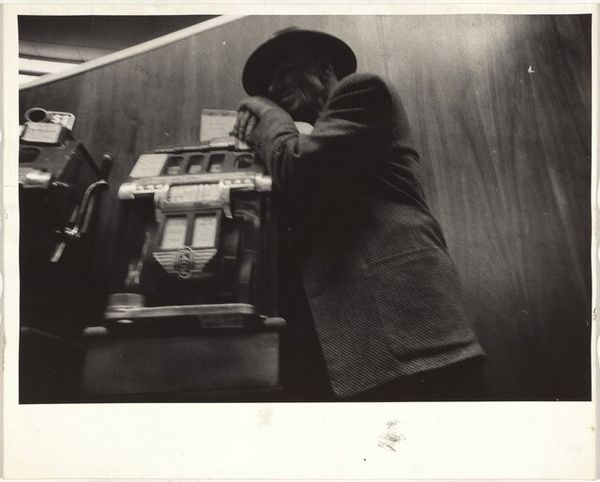
Control booth, NBC TV studio--Burbank, California c. 1955 - 1956
0:00
0:00
print, photography, gelatin-silver-print
#
portrait
#
film photography
# print
#
archive photography
#
photography
#
culture event photography
#
historical photography
#
gelatin-silver-print
#
genre-painting
#
modernism
Dimensions: sheet: 20.3 x 25.2 cm (8 x 9 15/16 in.)
Copyright: National Gallery of Art: CC0 1.0
Editor: This photograph, "Control booth, NBC TV studio--Burbank, California" by Robert Frank, dates to around 1955-1956 and is a gelatin silver print. It's interesting to see the concentration on their faces. What catches your eye about this piece? Curator: The relentless, mass-produced culture being manufactured in the television studio. This photo offers a critical view of how entertainment and information were becoming increasingly standardized and disseminated in post-war America. Think about the material conditions – the machinery, the very physical labor of these men in the booth – feeding the burgeoning television industry. Editor: So, you see the image speaking to the rise of mass media and its impact? Curator: Exactly. Look at the almost assembly-line nature of their work. Consider the technology they’re using – the microphones, headsets, the console – as extensions of their bodies, tools in the service of a growing media empire. How does the choice of a gelatin silver print – a reproducible medium – factor into this message? Editor: I hadn't thought of it that way, but the reproducibility definitely connects to the mass media aspect. It makes you think about the repetitive actions within that booth every day, contrasted with the supposed 'magic' that audiences experience when consuming TV. Curator: Precisely! The photograph unveils the often-overlooked labor and material processes involved in constructing these illusions. It begs the question: what are the costs of such mass production and consumption? And who benefits? Editor: It’s like Frank is highlighting the behind-the-scenes effort rather than the polished finished product the viewer sees. I’ll definitely be looking at photography, and all art, differently now. Curator: Good. Keep thinking about the making – the how, the why, and the for whom. That's where the power lies.
Comments
No comments
Be the first to comment and join the conversation on the ultimate creative platform.
